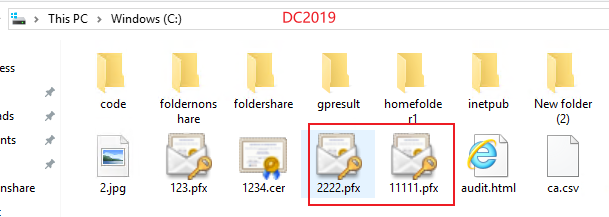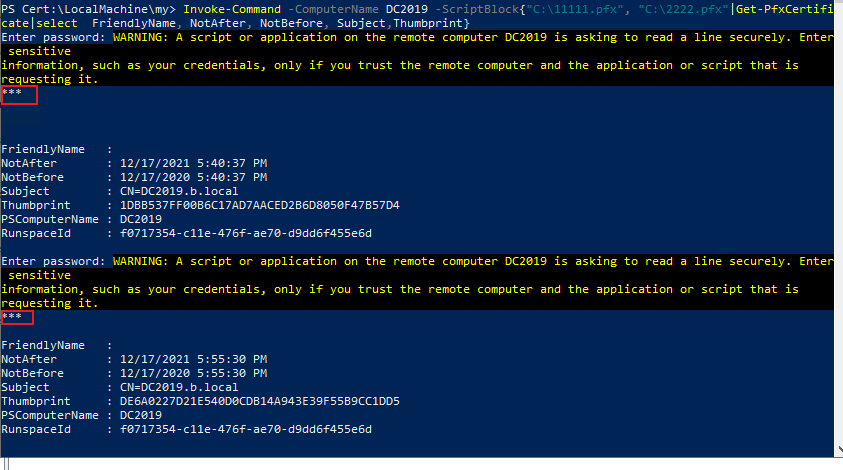Hello anonymous user,
Thank you for posting here.
Would you please tell us what certificate name is? Do you mean frienlyname or certificate name?
I did a test in my lab as below:
1.I have two .pfx certificates (C:\11111.pfx and C:\2222.pfx) on server named DC2019.

2.On another machien, I get the FriendlyName, NotAfter, NotBefore, Subject,Thumbprint of the two certs on DC2019 using command.
Invoke-Command -ComputerName DC2019 -ScriptBlock{"C:\11111.pfx", "C:\2222.pfx"|Get-PfxCertificate|select FriendlyName, NotAfter, NotBefore, Subject,Thumbprint}
Here is the result in my case.

Tip:
1.If you mean friendlyname, in my case, there is no frientlyname.
2.If you mean certificate file name, we can see they are C:\11111.pfx and C:\2222.pfx in my case.
Hope the information above is helpful. If anything is unclear, please feel free to let us know.
Best Regards,
Daisy Zhou

